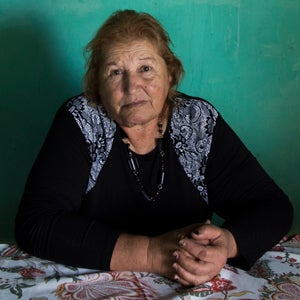
Marcela Cuadrado began to work at the public polyclinic in the Uruguayan town of San Bautista in 2005, the year that discussion began on reforming the Integrated National Health System to facilitate universal access to health care and strengthen primary care.
Canelones, Uruguay, July 19 (PAHO) - Marcela Cuadrado began to work at the public polyclinic in the Uruguayan town of San Bautista in 2005, the year that discussion began on reforming the Integrated National Health System to facilitate universal access to health care and strengthen primary care.
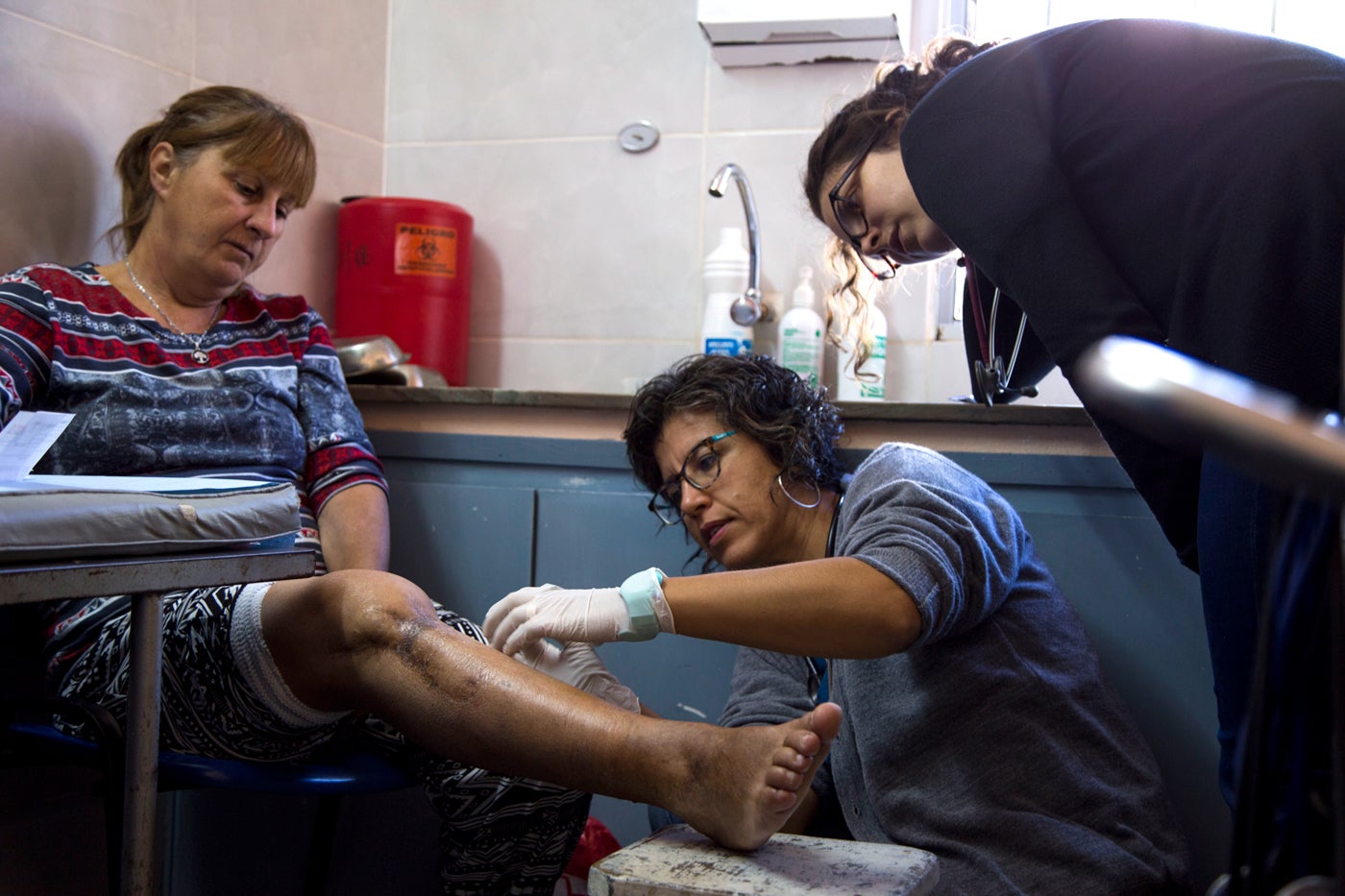
"At that time, the population did not use health services and there were no medicines available. Getting a laboratory test required going to Canelones, the departmental capital 35 kilometers away, and no one was doing pap tests or providing contraceptive methods," the polyclinic's director recalled, explaining that medical care lacked continuity.
San Bautista has a population of 4,000, most of whom are older adults. Agriculture and poultry farming are the main economic activities. Despite the municipality's proximity to the metropolitan area, it has limited transportation and very few social and cultural activities. Some people travel by horse to the health center.

"We had to go little by little, attempting to coordinate with the secondary care level (hospitals) and with the population, so that people would recognize the polyclinic as a place where health problems are solved," Dr. Cuadrado said.
The polyclinic now has a laboratory, the pharmacy has all the drugs on the list of essential medicines, basic medical specialties are available, and there is fluid coordination with other specialists. In addition, the polyclinic's health workers make home visits and work with the community.
"As family doctors, we are specialists in treating patients comprehensively. We take account of biological factors, but also emotional ones. We know how people live, how they make their living, what they do in their free time, and whether or not they consume toxic substances. These factors determine whether people are healthy or sick"
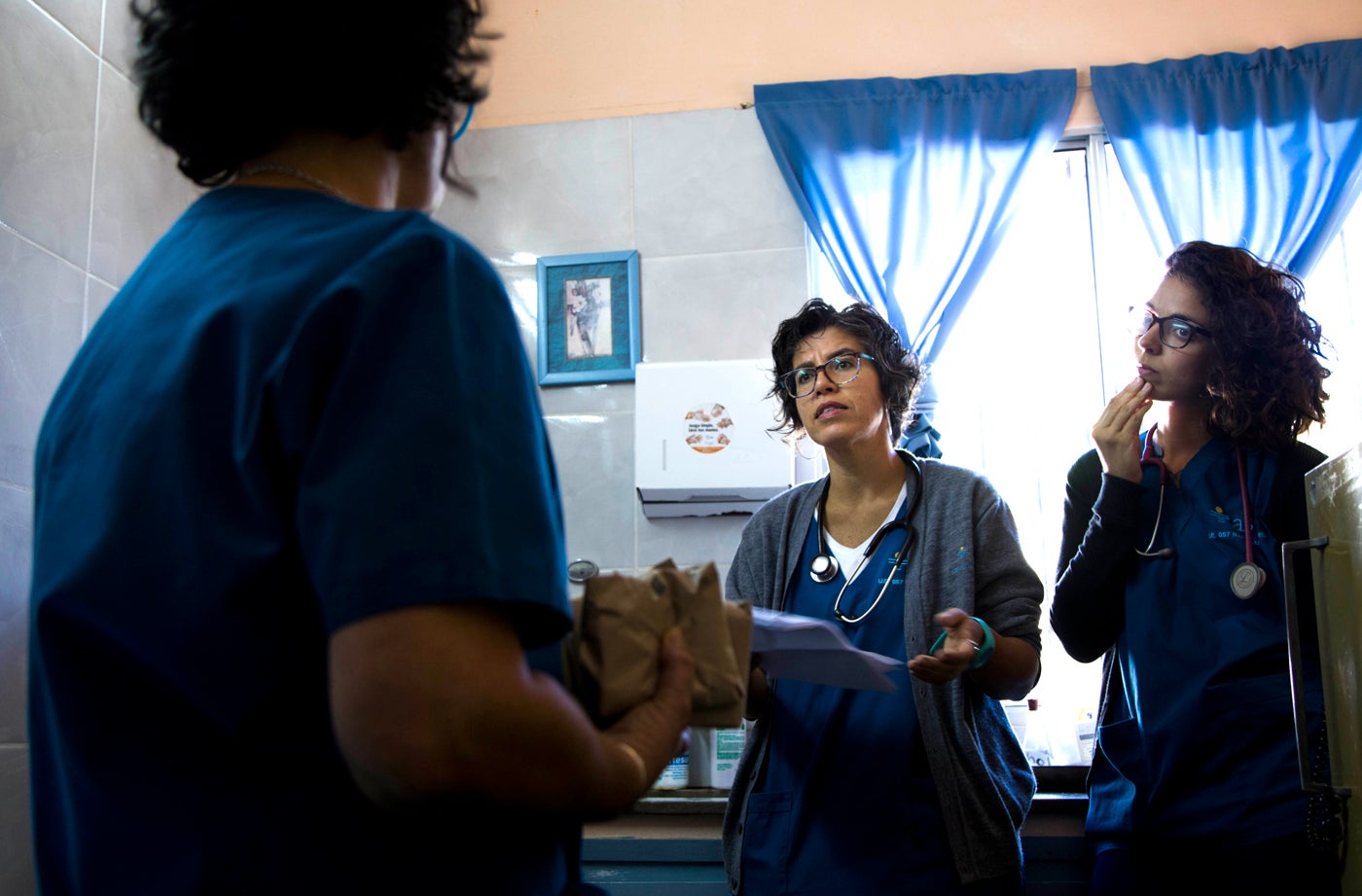
The polyclinic's on-site response capacity and the access it offers to quality health care (independent of patients' financial resources) are two advantages that largely explain why the community calls the polyclinic "the best health service" in the area. It currently serves 40% of the population, and new patient records are opened almost every day.
"As family doctors, we are specialists in treating patients comprehensively. We take account of biological factors, but also emotional ones. We know how people live, how they make their living, what they do in their free time, and whether or not they consume toxic substances. These factors determine whether people are healthy or sick," Cuadrado explained.
The San Bautista polyclinic not only ensures quality care but also goes beyond the concept of disease to promote physical and psychosocial well-being. The polyclinic is managed by the state's Health Services Administration and works with the Medical School of the University of the Republic to train future doctors and family medicine specialists.
Early detection of disease as well as continuity of care and treatment are essential for ensuring good health. These goals are not always met, however, as a result of financial, geographical, social, and cultural barriers, or because the health system is not able to guarantee continuity and quality of care.
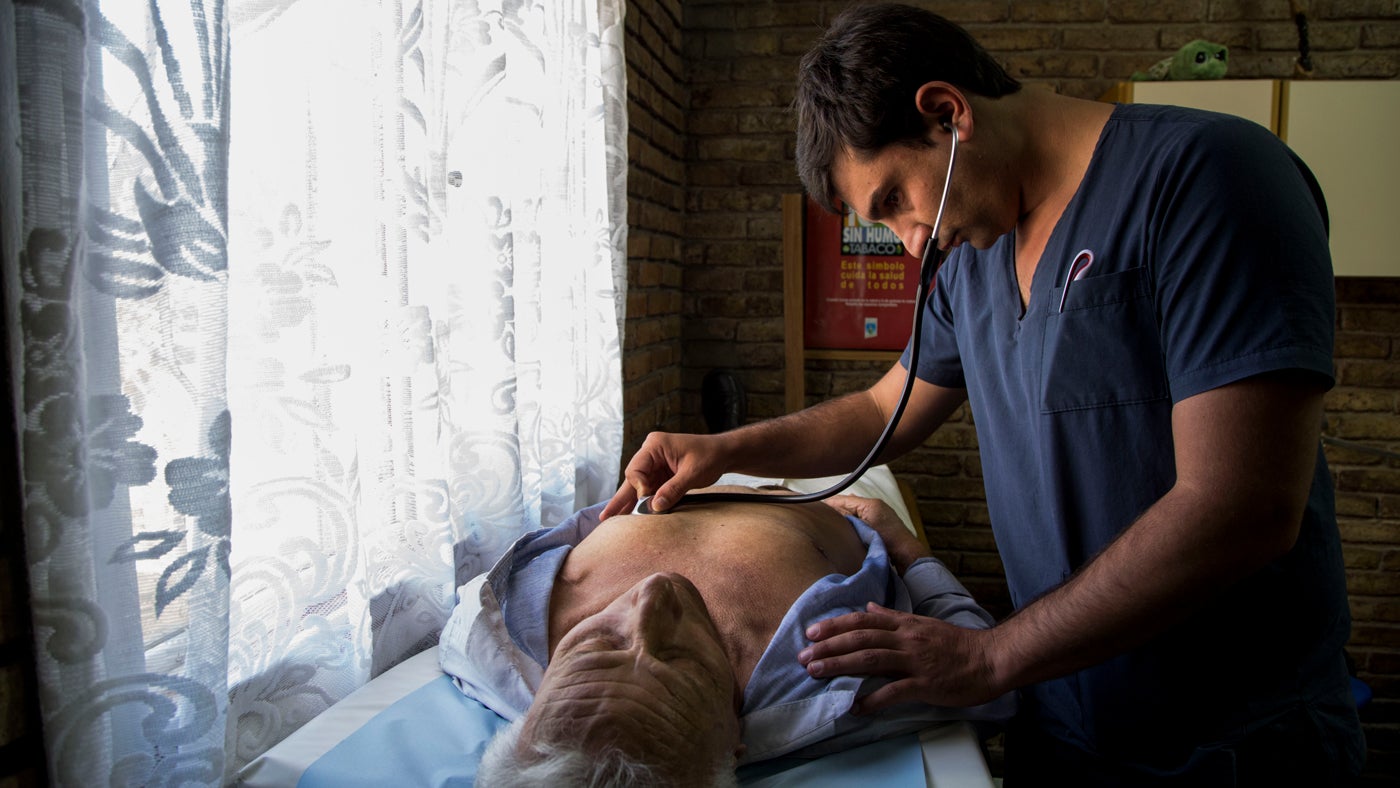
Because this health center is an example of good practices, its experience was chosen by the Pan American Health Organization (PAHO) and Uruguay's Ministry of Public Health to be shared as part of the World Health Day 2018 campaign, under the slogan of "Universal Health Coverage: Everyone, Everywhere."
The polyclinic's success is part of the universal health strategy promoted by Uruguay's National Integrated Health System. The National Health Fund now covers 73% of the country's population, expanding from 700,000 people in 2004 to two and a half million today.
Friendly treatment
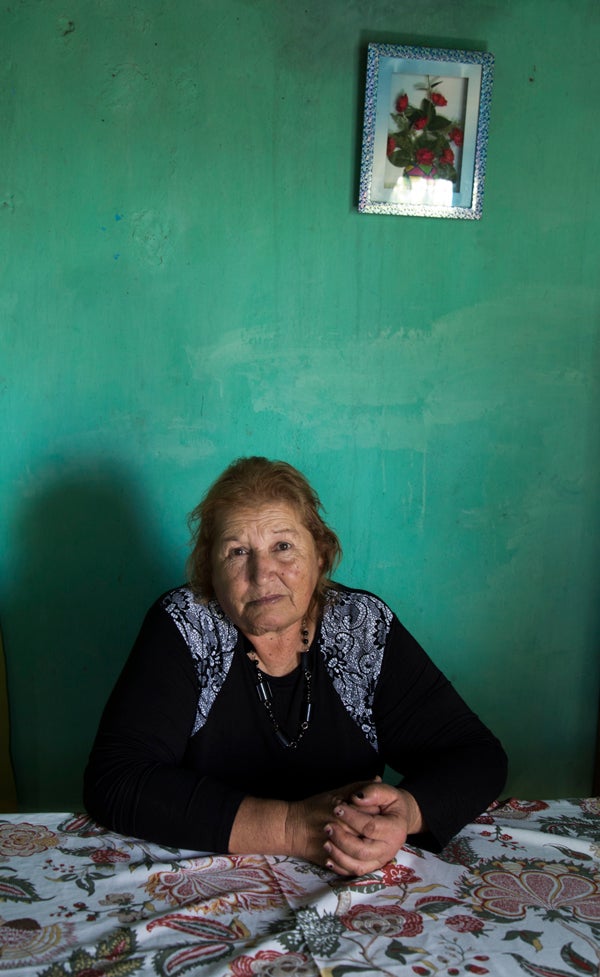
Another reason for user satisfaction is the polyclinic's non-hierarchical, friendly treatment. "I have a different life from the one I had before," said Ana, an older woman who lives in a very remote area without any means of transportation. "Thanks to the doctor, I have received answers to my questions, because she is not only my personal physician but my friend."
Since 2012, Ana has been a participant in workshops that Dr. Cuadrado initiated for rural women. "I learned to have confidence in myself and realize that I am not the only person who has problems," she declared, adding that the group helped her to make friends and overcome depression.
Cuadrado says that the group has empowered women. "Many have finished high school, gotten different jobs, and been motivated to travel and do things that they had not done previously," she said. In addition to conversing in the group, the participants do yoga and relaxation exercises, and they play.
The workshops have begun to address the subject of gender-based violence. In order to help reduce it, Cuadrado has decided to work with men this year also, and is organizing mixed workshops.
Valentín is a 72-year-old man with high blood pressure who had a heart attack several years ago. "Unfortunately, there is not much to do in San Bautista besides going to the bar with friends," he lamented, adding that now he avoids that in order to keep away from alcohol.
This experience of close proximity and contact between people and health services is a reminder that health is not simply the absence of disease or infirmity but a comprehensive state of physical, mental, and social well-being, as the 1948 Constitution of the World Health Organization asserts.



